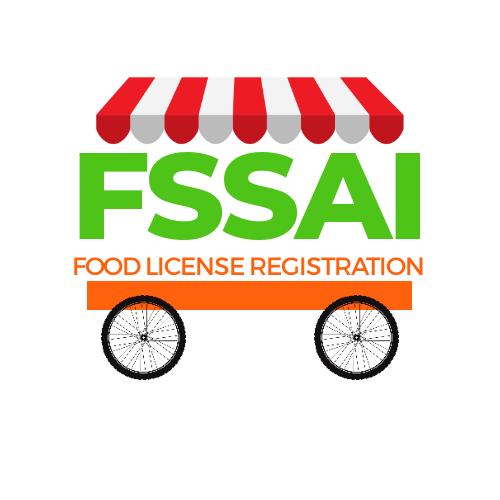Benefits of FSSAI Registration
The FSSAI is a governmental body tasked with ensuring food safety in India. The FSSAI registration was created at the central level, to ensure that food products being sold in the Indian marketplace would adhere to a set of guidelines and regulations at any given time. In other words, the main goal of an FSSAI registration was to ensure public health, through a mechanism of regulation and supervision of food safety in the country. The department issues licenses to various businesses on the basis of an FSSAI fee. The FSSAI fee is paid at the time of registration, and the subsequent number issued is printed on their product or mentioned in a prominent place, for the general public.
The term FSSAI is an acronym for ‘Food Safety and Standards Authority of India’.
The FSSAI is an autonomous body, as per the existing legislative framework. This department in turn operates under the Ministry of Public Health, which operates under the central government of India. The department is in other words, a part of the central government of India, and whose oversight extends all across the territory of India, with regard to issues concerning food licensing.
The purpose of setting up the FSSAI department was in very simple words, for the sake of efficiency and simplicity of the food safety registration and regulation in India. It became apparent that as time passed by, there was a clear need for the creation of a body to regulate the food safety oversight across India. The reason for this was because the entire system of food safety management and regulation was very chaotic across the country. It became very difficult to manage food safety regulations in the country, owing to multiple departments throughout the country being tasked with the job. In an effort to quell the mess and make the process efficient, a new governmental body called the FSSAI was created, and tasked with all of the above mentioned responsibilities. In other words, the FSSAI was made the only department in the entire country that could oversee food safety and quality standards across the country. Today, all food manufactures are required to get FSSAI license, in order to operate in the market.
The FSSAI was established as an independent autonomous body, under the Ministry of Public Health, for the purpose of regulating the food licensing process in the country. The legal backing used by the Ministry of Public health is the ‘Food Safety & Standards Act, 2006’, a law passed to ensure the safety of food products, through the enforcement of necessary standards and regulations. All of the licenses issued by the FSSAI are issued under this law, if one were to apply for a food license in India.
The FSSAI has a variety of different powers given to it, for the purpose of executing its primary responsibilities pertaining food safety registration in India.The details of the same are given below:
1. The framing of regulations to create food safety standards.
2. To lay down guidelines for accreditation of the laboratories involved in food testing.
3. Provide scientific advice as well as technical support required by the central government.
4. Contributing to the creation and development of international technical standards for food, and the subsequent framework that would apply for a food license.
5. The collection and collation of data related to food consumption, emerging risks, contamination, etc.
6. The dissemination of information and promotion of awareness about food safety and nutrition in the country.
The FSSAI is a centralized organization, with several sub-divisions operating throughout the country. Heads of the state sub-divisions are appointed by the main FSSAI body, seated in Delhi. The main department in turn, is headed by a non-executive Chairperson, who is appointed directly by the central government. Appointments for the post are done by officials of the central government, who either hold or have held positions that are not below the rank of Secretary to the Government of India.
The main headquarters of the FSSAI in India is located in the country’s capital, New Delhi. Furthermore, there are six regional offices that manage these divisions, located in Guwahati, Mumbai, Kolkata, Chennai and Cochin. This department is tasked with the management of five different divisions across the country, which is given below.
1. Northern Region
2. Eastern Region
3. North Eastern Region
4. Western region
5. Southern Region
Each division is responsible for managing the functions of the FSSAI’s functions in the country, in its respective divisions. In addition to this, it should be added that these divisions are not autonomous in any way. They are just subsidiaries, reporting to the main head office in New Delhi with regard to their daily operations. In other words, these regions do not formulate policies of any kind on their own in any way.
The FSSAI is currently engaged with raising awareness among the general public and businesses on the subject of food safety. In addition to this, it is also slowly starting to branch out into the subject of creating a system of training programs, with the help of various accredited organizations and universities. This is however in the initial stages and will take some time before being fully implemented. The process will probably take a few years to be fully implemented across the country. The details of the same can be found though the FSSAI online portal. Do note that these are some of the most important FAQs with regard to the FSSAI in India. There are certainly plenty more such FAQs as well, based on your unique doubts and requirements. Depending on these, you should be able to clarify your doubts about the system, whether it is through an FSSAI agent or through the FSSAI online registration process. As a whole, it can be said without a doubt that the FSSAI is one of the most important governmental bodies, when it comes to ensuring food safety. Through its organizational structure, food safety protocols, testing laboratories and other initiatives, it is playing a major role to safeguard public health across India. For a business desiring to enter the country’s booming food market, it is necessary that one gets in touch with an FSSAI agent or FSSAI online registration, to apply for the necessary permits.
The FSSAI currently has multiple sub-divisions or departments that handle its various functions. The list of all the departments are given in the list mentioned below:
1. Import Division
2. International Co-operation
3. Regulatory Compliance Division (RCD)
4. Information Education Communication (IEC) Division
5. Regulation and Codex Division
6. Quality Assurance/ lab Division
7. Food Safety Management System (FSMS) Division
8. Risk Assessment and R&D division (RARD)
9. HR Division
10. Standards Division
Each of these various departments executes a specific function that the FSSAI is responsible for, and to help one get an FSSAI license.
The Import Division of the FSSAI is tasked with the oversight of food, with regard to the imports coming into the country. The quality of the food imported is subject to the scrutiny and oversight of the FSSAI. The department that handles the role of ensuring that food products entering the country have a certain degree of quality, before being released into the market for consumption.
The regulation and codex division of the FSSAI is tasked with the role of laying down the framework for ensuring food safety and quality standards. It works to establish science-based standards on regulations regarding food safety, as well as formulating adequate suggestions and recommendations on managing the process.
The International Co-operation division of the FSSAI is responsible for the tasks that involve cooperation with foreign bodies and governments, with regard to food safety between the countries. It is the department that handles any contacts coming in its way from a foreign country, with regard to food safety and other related quality issues.
The Regulatory Compliance Division of the FSSAI is the department which is responsible for ensuring that existing rules, regulations are followed and the creation of a suitable FSSAI food license system. In simple words, its role is to ensure that the regulatory compliance of all concerned parties is maintained at all times, with regard to existing legal frameworks. In addition to this, it also provides reports for the central department with regard to legal matters on food safety and overall quality.
The Food Safety Management System division of the FSSAI is tasked with ensuring managerial oversight of the entire food safety regulatory process and FSSAI food license system. Its role is to indentify, evaluate and consequently control food hazards that may exist in the existing supply chain. This extends from the basic ingredients used, to the food preparation process and packaging, as well as storage and transportation. In other words, it is the all encompassing system of the regulatory process, which is managed by this division of the FSSAI.
The Risk Assessment and R&D division of the FSSAI is tasked with two important functions. The details of the same are given below:
1. Risk Assessment – This function is related to the existing risk evaluation process with regard to the current food safety mechanism. Anything deemed to be of danger to public health and safety, is managed by this department. Its function, in simple words, is to estimate and evaluate the degree of potential risk that a food product or something related has, with regard to public health.
2. The R&D division of the FSSAI is tasked with all research and developmental processes associated with the food safety regulatory mechanism. In simple words, its role is to make sure that sound mechanisms exist with regard to research and division, as well as the setting up of higher standards to promote better food safety. Among the functions that are served under this department includes carrying out evidence based food safety tests, collaborating with concerned parties on subjects relating to ensuring food safety, and promote the development of food testing methodologies as well as any applicable technology.
The Information Education Communications Division of the FSSAI is tasked with the role of managing all information related to the FSSAI, and its subsequent dissemination to the general public and concerned parties. In simple words, the department’s role is to spread the necessary information to anyone who may require it. The information that s spread about includes, among others, important details on ensuring food safety, hygiene information, adulteration detection, the existing standards for food preparation, etc. Simply out, it acts as an information dissemination arm of the entire FSSAI department.

